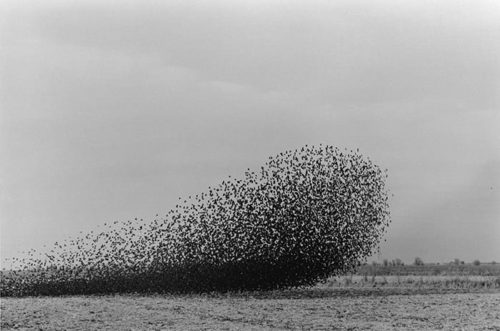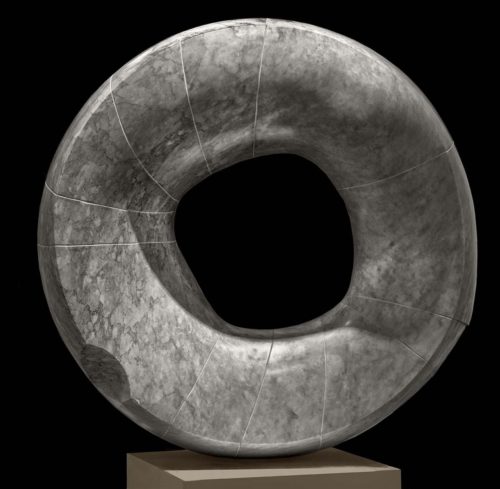
Arthur Luiz Piza
“The problem with simulations is that they are doomed to succeed.’ So runs a common criticism of simulations—that they can be used to ‘prove’ anything and are thus of little or no scientific value.”
Patrick Grim, et al (Why Simulations Fail)
“He reminds us that information means something deeper now: “It connotes a cosmic principle of organization and order, and it provides an exact measure of that.” The gene has its cultural analog, too: the meme. In cultural evolution, a meme is a replicator and propagator—an idea, a fashion, a chain letter, or a conspiracy theory. On a bad day, a meme is a virus.”
James Gleick (The Information)
“Philosophy is a battle against the bewitchment [Verhexung] of our intelligence by means of language.”
Ludwig Wittgenstein (Philosophical Investigations)
We have, as a culture, forgotten so much. How to remember, or rediscover, what we have forgotten is an essential task. It is a spiritual task more than it is anything else.
I have written before, and its been discussed on the Aesthetic Resistance podcasts, that the vastness and enormity of the Earth is the first order of forgotten.
There are a million and a half species of beetles. Over five million insect species, and that’s apparently a low ball figure since new ones are discovered each year. There are seven million species of terrestrial arthropods. There are over a billion insects for each person on earth. Insects have been around for over 350 million years. There is even an insect native to Antartica, the wingless midge (Belgica antarctica). There are upwards of twenty thousand bird species, though a recent study found six hundred new ones. Birds are apparently relatively secretive.
There are six thousand species of mammals (not counting the 96 recently extinct). One fifth of the rest are listed as endangered. The US alone has four hundred species of mammals. Nobody quite knows the numbers for reptiles since a hundred or so are discovered each year, but its about ten thousand. The most recent discovery was the Brookesia nana chameleon (from northern Madagascar), also the smallest known lizard, about the size of large sunflower seed. Twenty five thousand fish species, though again, it’s a guess. New fish, especially deep water varieties, are found almost monthly.

Lukas Felzmann, photography.
There are 390 thousand vascular plants, over 90% of which flower. And 96% of which produce seeds. There are three trillion trees in the world. Tree cover has been reduced substantially, but the number of trees has actually increased globally.
I could go on (and on and on and on). There are sixty thousand varieties of snail for example. And most can be eaten (with garlic and butter) { there are eleven varieties of garlic}. The point is that the vastness of Earth is incomprehensible. There is a cottage industry of sorts built around the notion of how vast the Universe, how incomprehensible the idea of infinity. How small our tiny planet is in comparison. But rarely, it seems, is the Earth spoken of in terms of vastness. In fact for forty years or so it has been described as small, a village, and only a tiny insignificant rock, the third from the Sun. The Green movement(s), interestingly, are oddly inarticulate about the world they claim to want to save. And that idea itself is open to investigation.
The first definition for save in the dictionary is ‘keep safe or rescue (someone or something) from harm or danger.’ The second is ‘keep and store up (something, especially money) for future use.’
The environmental movement means to save Nature, or Earth, from harm. To rescue it from danger. And therein lies a kind of an issue. And that is that one cannot quite find an adequate definition for Nature. To go to the dictionary again…’the phenomena of the physical world collectively, including plants, animals, the landscape, and other features and products of the earth, as opposed to humans or human creations.’
As opposed to humans. So humans are not part of Nature as the definition has come down to us. But putting that aside for a moment, there is a implication in most climate discussions (for example) that appeals to the authority of science. It also, by extension, implies the rescue will be technological, and this includes, usually, artificial intelligence (AI). That last relation is tenuous, I admit, but most of those eco-alarmists are relying on computer modelling. The AI adherents are everywhere, on both sides of most arguments.

Sandra Cinto
I wrote before on AI, and wont go over it all again. https://john-steppling.com/2020/11/the-mechanical-soul/
James Gleick, in a piece about Google, quotes Larry Page “Eventually you’ll have the implant, where if you think about a fact, it will just tell you the answer.” This is the exact spot at which the problem begins. Because, no, this implant will not be able to read your mind. There is no mind, per se, to read. Consciousness is not this thing. Thinking is not an internal scroll that unwinds. And a thought, a desire (I want a coke..Im thirsty) is not on this scroll, the one that doesn’t exist. Now people are deeply attracted to this idea, though. The idea that the brain, that thinking, is pretty much what a computer does. That we just have a different sort of software in there. They want this idea of brain=machine to be true (or many do).
Google expanded remarkably in a short period of time.
“How thoroughly and how radically Google has already transformed the information economy has not been well understood. The merchandise of the information economy is not information; it is attention. These commodities have an inverse relationship. When information is cheap, attention becomes expensive. Attention is what we, the users, give to Google, and our attention is what Google sells—concentrated, focused, and crystallized.”
James Gleick (How Google Dominates Us)
We are not its customers, but its product. Google makes 96% percent of its tens of billions of dollars profit from advertising. It sells our search histories, our clicks, and it puts keywords, for example, up for auction, essentially. Now, there is a mythology at work that suggests Google knows everything about you. But of course it doesn’t. I once searched for best 9mm automatic because I was writing a crime script. I just wanted some jargon, too. For months I got ads from Gun Shops, and articles from Guns and Ammo, etc. I have no interest at all in guns. This is an obvious example, but the problem, and one that I suspect is growing, is that Google users (everyone almost) start to search for what Google gives them. It’s almost a Stockholm Syndrome. People think what will please my algorithm? It may not exist in quite that way, but thinking is intentionally narrowing itself, the better to conform to the logic of internet platforms.

Edson Chagas, photography.
“It’s for your own good—that is Google’s cherished belief. If we want the best possible search results, and if we want advertisements suited to our needs and desires, we must let them into our souls.”
James Gleick (Ibid)
Now, putting aside Google’s virtues, or lack thereof, the rise of digital information processing is actually the subject here. And this is the heart of, I think, the quality of humanity’s forgetting. It is the final act for Enlightenment science, really. And it feels, to me anyway, like science itself is now self cancelling, it has reached a point of diminishing returns. Progress, as an idea (more on that below) is finding itself in curious logical cul de sacs. Of course, cutting across all this is the political projects of the new billionaire class, the most powerful men in the world, largely (save for President Xi of China and probably Putin, and maybe one or two others). The Great Reset and the new Climate emergency.
“Bridging the physics of the twentieth and twenty-first centuries, John Archibald Wheeler, the last surviving collaborator of both Einstein and Bohr, put this manifesto in oracular monosyllables: “It from Bit.” Information gives rise to “every it—every particle, every field of force, even the spacetime continuum itself.” This is another way of fathoming the paradox of the observer: that the outcome of an experiment is affected, or even determined, when it is observed. Not only is the observer observing, she is asking questions and making statements that must ultimately be expressed in discrete bits. “What we call reality,” Wheeler wrote coyly, “arises in the last analysis from the posing of yes-no questions.” He added: “All things physical are information-theoretic in origin, and this is a participatory universe.” The whole universe is thus seen as a computer…”
James Gleick (The Information)

Unknown artist, wall painting, Villa of P. Fannius Synistor at Boscoreale
ca. 50–40 B.C.
Calling the alphabet the first information technology is a bit disingenuous. But such cute concepts are attractive to the new science. Gleick then writes…“In the long run, history is the story of information becoming aware of itself.” Well, no. Although all such generalisations are bogus in the end. I wrote before about the reductive nature of AI theorists. And of the theory itself. But Gleick is very good and concise here:
“Paleolithic people began at least 30,000 years ago to scratch and paint shapes that recalled to the eye images of horses, fishes, and hunters.These signs in clay and on cave walls served purposes of art or magic,and historians are loath to call them writing, but they began the recording of mental states in external media. In another way, knots in cords and notches in sticks served as aids to memory. These could be carried as messages. Marks in pottery and masonry could signify ownership. Marks, images, pictographs, petroglyphs—as these forms grew stylized, conventional, and thus increasingly abstract, they approached what we understand as writing, but one more transition was crucial, from the representation of things to the representation of spoken language: that is, representation twice removed. There is a progression from pictographic, writing the picture; to ideographic, writing the idea; and then logographic, writing the word.”
James Gleick (Ibid)
But such schematic depictions of history are problematic in the end. And I say that mostly because there is a thumbnail representation of deep history that is highly reductive, and it is biased, unavoidably, toward the conventional notion of progress. Those cave painting were, I agree, a form of early writing. A kind of precursor to writing (see André Leroi-Gourhan), but they were also other things. As I keep noting, religion came out of theatre. And in this sense the two are almost indistinguishable. The painting and scrating on walls and rocks served several purposes, and one was, almost certainly, a depiction (and formation) of subjectivity. That interior development (which is a loaded word) was something that later systems of information (sic) began to erode. In fact the later systems, the Gutenberg Revolution, began to reshape subjectivity. It both expanded it in some ways, and contracted it in others. With the Enlightenment, the age of science, there came a new exteriority, Religion had been institutionalized and the realm of the interior was de-prioritized in favor of studying the outside world. Nature, separate from man.
At the same time, a hubris about the importance of man presided over this study of the external world. Of Nature. The assumption was that, as Alexander Pope put it, in his Essay on Man, in 1733, “…the proper study of mankind is man”.

Toko Shinoda
“As Chalmers explained: ‘I’m talking to you now, and I can see how you’re behaving; I could do a brain scan, and find out exactly what’s going on in your brain – yet it seems it could be consistent with all that evidence that you have no consciousness at all.'”
Oliver Burkeman (The Guardian, Long Read 2015)
The enormity of earth is mirrored, in one sense, by the enormity of consciousness. And at some point all AI theorists admit they have no idea what consciousness is, how it works, or anything else about it. Although, over the last decade (led by Daniel Dennett, originally, among the most unreadable of philosophers) the current position is that there is no such thing as consciousness. Its an illusion. And a waste of time to speculate about. Which sort of marks out the final dead end or blind alley of modern science and AI.
To go back a moment, when I say religion came out of theatre, I am giving theatre a very wide definition. When those cave dwellers moved about in the dark, sharing food, talking, some kind of repetitive behaviour began to take place. Rituals if you like. Whatever they were, such sharing…a men with a elk leg, warmed at the fire, walked across this space. He stopped, eyes of all the others now on him alone. He was on stage. He then held up the elk leg. He may have danced. These things took place millions of time across the planet. But what that man did was define the contours of consciousness as he felt them. If there was some ray of light from outside, he stood in it. He sensed from his dreams that this was ‘something’. Whatever sounds he made were repeated eventually, by himself and others. I think language came out of dreaming, more than it came out of play. But I suspect both were aspects were involved.
“Observation of children shows that learning to speak is for them in itself play and then serves to enrich their life of play. And the analysis of language, not a particular language but language generally, reveals its essentially playful structure. In the words of Cassirer, ‘Language is, by its very nature and essence, metaphorical’; and every metaphor is a play upon words.8 Jespersen also concludes that ‘language originated as play’.”
Norman O. Brown (Life Against Death)

Ferdinand Hodler (detail, The Night) 1890.
The infant makes sounds, imitates the mother, and this is primary mimesis. But in the world before alphabets, before texts, before history therefore, man dreamed. The infant made sounds, gazed at the face of the mother. Mimesis, before text. As he or she grew, those sounds appeared in dreams. In the cave, those dreams became performance, and, the start of language.
“No people understands any more the sensual language, and the birds in the air and the beasts in the forest do understand it according to their species. Therefore man may reflect what he has been robbed of, and what he is to recover in the second birth. For in the sensual language all spirits speak with each other, they need no other language, for it is the language of nature.”
Jacob Bohme (Mysterium Magnum,1623)
We then return to what is called ‘the hard problem’: consciousness. And one of the keys for AI: ‘information’. Now what is interesting to me, since I suffer from a kind of childhood belief in panpsychism, is that at its root, the debate around consciousness is starting to consider panpsychism, or some rarified version of it, in discussing artificial intelligence, and the ‘hard problem’.

Isamu Noguchi
Information, goes the prevailing view, is dependent on an observer. Consciousness is ontologically independent. Or, rather it is observer independent, It is subjective. For David Chalmers and Christof Koch, and a couple others, information (integrated information, i.e. that which makes a difference to a system) is, from its intrinsic position, independent of an observer. Whether one buys that or not, one can extrapolate it to suggest that machines might one day think (or have souls). The problem is, as John Searle noted (in a letter to the NYRBs answering Koch)
“One of my criticisms of Koch’s book Consciousness is that we cannot use information theory to explain consciousness because the information in question is only information relative to a consciousness. Either the information is carried by a conscious experience of some agent (my thought that Obama is president, for example) or in a nonconscious system the information is observer-relative—a conscious agent attributes information to some nonconscious system (as I attribute information to my computer, for example).”
And here we arrive at the issues around panpsychism. Koch and his co-author Giulio Tononi, wrote (in this exchange with Searle)…
“Strictly speaking, then, the IIT [Integrated Information Theory] implies that even a binary photodiode is not completely unconscious, but rather enjoys exactly 1 bit of consciousness. Moreover, the photodiode’s consciousness has a certain quality to it….”
(NYRB, 2013 March)

Tetsuya Ishida
The argument that Koch and Tononi put forward was that at its most basic level, where quarks and protons exist in some integrated relationship, there is by their definition, a tiny ‘bit’ of consciousness. This is panpsychism. And the problem for AI, with panpsychism, is summarized neatly by Wittgenstein’s often quoted
“If a lion could speak we could not understand him.”
And this relates to simulations and computer models. If everything has a form of consciousness, is in some unique way sentient, the problem is that those registers or domains of sentience are different from humans. The human cannot communicate, or even observe, the sentience of gravel or asteroids, or park benches. And I think its likely misleading to call this one ‘bit’ of information ‘consciousness’. It is something, perhaps, but like the talking Lion, I cannot know what it is. The problem of earth’s complexity resulted in early computer simulations with toy planes and flying objects failing as they were scaled up. Each step magnified complexity, though this issue has remained rather ignored.
“But the deepest objection is that the theory is unmotivated. Suppose they could give a definition of integrated and differentiated information that was not observer-relative, that would enable us to tell, from the brute physics of a system, whether it had such information and what information exactly it had. Why should such systems thereby have qualitative, unified subjectivity? In addition to bearing information as so defined, why should there be something it feels like to be a photodiode, a photon, a neutron, a smart phone, embedded processor, personal computer, “the air we breathe, the soil we tread on,” or any of their other wonderful examples? As it stands the theory does not seem to be a serious scientific proposal.”
John Searle (Ibid)
This is an insanely complex topic and I want to try to point to some of the problems with the increasingly popular fantasies of AI (and Metaverse, and with computer modeling, and with Google and its mind reading aps, etc).

Andy Denzler
“We are thus facing the following strange situation. While all building stones for the [modern scientific] world-picture are furnished by the senses qua organs of the mind, while the world picture itself is and remains for everyone a construct of his mind and apart from it has no demonstrable existence, the mind itself remains a stranger in this picture, it has no place in it, it can nowhere be found in it. “
Erwin Schrödinger (On the Peculiarity of the Scientific World-View)
And the following paragraph is very much to the point…from Edward Feser:
“In the case at hand, neuroscientists who begin, as every empirical scientist must, with observations – that is to say, with conscious experiences whose character is determined by various sorts of qualia or sensory qualities – go on to construct a theoretical description of the physical and neural processes associated with perception. This theoretical description then takes on, as it were, a life of its own, coming to seem as real or even more real than the concrete experiences that led to it, and the language in which the former is couched comes to be applied to the theorist’s description of the latter. Thus an explanation of “heat” in the sense of molecular motion comes to seem, especially when coupled with neuroscientific data, an explanation of “heat” in the sense of a certain kind of tactile sensory quality; an explanation of “red” in the sense of light of a certain wavelength comes to seem an explanation of “red” in the sense of a certain kind of visual sensory quality; and so forth.”
Edward Feser (Schrödinger, Democritus, and the paradox of materialism)
Scientists today are ever more specialized, and as Feser notes later in that article, ever less philosophically educated. The idea that mapping neural signals in the brain, even in the most detailed and exhaustive manner, is in anyway at all an explanation of mind, is really pretty obvious, but alas, today it is not. It is, I think, an expression of the dominance of purely mechanistic explanations of everything.
Of course there are other issues entering this discussion. Political ones, for openers. As my friend Johan Eddebo noted in conversation, this digital accumulation of facts is really capitalist property relations come full circle. And I wrote last posting about the much underrated influence of Taylorism to not just our material world, but to our psychology.

Carlo Borer
“In fact it is scientism which fosters obscurantism, ignoring as it does clear conceptual distinctions and forcing all intellectual life into a methodological procrustean bed. And in fact the mechanistic “objectified” conception of matter inherited from the early moderns is not a scientific discovery at all but a philosophical posit, and one which creates philosophical problems rather than solves them.”
Edward Feser (Ibid)
and one more from Feser:
“Rather, what is necessary is just the ability to see that it is only persons, rather than any of their components, who can intelligibly be said to be conscious, to think, to perceive, to act, freely to choose, and so on (just as it is paintings and words, rather than the paint or ink splotches they are made up of, that can intelligibly be said to represent things, to have syntactic and semantic features, and so forth). Hence, from a failure to locate such activities at the neuronal level, it simply does not follow that the activities do not exist — again, one must presuppose reductionism to draw that sort of conclusion, so that a failure to locate the activities at the subpersonal level hardly establishes reductionism. Similarly, it makes no sense to attribute the activities in question to the subpersonal level (as some reductionists do) — to characterize neural processes as “deciding” this or “perceiving” that. Only persons decide, perceive, think, freely choose, etc., if anything does. Hence it is to the level of persons as a whole, and not to their parts, that we must look if we are fully to understand what is happening when we think, perceive, feel, choose, act, etc.”
Edward Feser (Reading Rosenberg, Part IV)

Luis Feito
The current project to create digital IDs, vaccine passports (sic), microchip markers for everyone, all of this is the product of a class system that Marx outlined pretty convincingly 150 years ago. But this particular moment, in 2021, represents the culmination of a phase, or project, from the ruling class (the very wealthy) which coincided with the enormous transference of wealth (of all kinds) to the very tip top 1% over the last ten to fifteen years. And this particular phase of oppressing the vast majority of mankind is being marketed and given cover by two separate but related campaigns. One is the Covid pandemic, and the other is the Climate Emergency (or global warming, etc). Capitalism had reached some kind of final crisis in 2008. I say final, but of course it wasn’t really final. Nothing is ever really final in the class struggle. But the system needed to be renovated. Refurbished somehow. And this has all been fairly well outlined by many writers, Cory Morningstar among them. Economists like Ernst Wolff have provided pretty clear explanations. So I don’t need to go over it all again. What interests me though are two things. One is why so many, maybe half, maybe less, of the global population buys into it. And two, what sort of world is being imagined by those trying to reshape it.
The second question overlaps a bit with the first. And to return to the very top of this posting, the issues surrounding science, and the belief, nearly religious, about computer technology, and all things digital, is a significant factor in how and why this is happening. The climate discussion is linked at its core with computer modelling. All the various predictions and solutions and demands you have read for twenty some years, not to mention the recent summit on climate at Glasgow, suggest both a trend toward blind trust in the authority of computer technology and analysis, and by extension, there emerges something amenable to fascism.
It is revealing to look at the early promos for Metaverse, because this is a cartoon world. The aesthetics are appallingly childish and ugly. And this is something I’ve not heard a single comment about. Aesthetic regression passes without notice, it seems.

Gyoshu Hayami
Various religious traditions in both East and West took a non mechanistic path — a path to where might be a relevant question, one actually never asked in western science.
“Śaṅkara repeatedly discusses the reasons why other means are inapplicable. He comments often on the limits of sense perception in relation to knowing brahman. Each sense organ is naturally capable of revealing a quality that is appropriate to its own nature.Sound,sensation, form,taste and scent are their respective spheres of functioning. Brahman, however, remains unknowable through any of these because of its uniqueness. Brahman is without sound, touch, form, taste, or smell and is therefore outside the domain of these sense organs. Kaṭha Upaniṣad 1.3.15 speaks of brahman as “that which is soundless, touchless, colorless, undiminishing, and also tasteless, eternal, odorless, without beginning, and without end, greater than the greatest, and ever constant.” Brahman is limitless, while to become an object of sense knowledge is to be finite and delimited, to be one object among other objects. A brahman that is appre- hended through the senses is, from the Advaita viewpoint, a contradiction. In his commentary on Bhagavadgītā 13:12, for example, Ṡaṅkara rejects the claim that there is a contradiction in the denial of brahman as both sat (existent) and asat (non-existent) by interpreting these terms to signify the non-availability of brahman as an object of sense knowledge.”
Anantanand Rambachan (That From Which All Words Return”: The Distinctive Methods of Language Utilization in Advaita Vedānta)
There is no idea of mastering Nature in Advaita Vedanta.
Elizabeth Underhill defined mysticism as “the science of self-evident Reality.” (Mysticism).

Julio Romero de Torres
“Now etymology depicts the process of language in time. And it is a commonplace of the subject that, whatever word we hit on, if we trace its meaning far enough back, we find it apparently expressive of some tangible, or at all events, perceptible object or some physical activity.”
Owen Barfield (A Study in Idolatry)
Barfield adds later…“Speech did not arise as the attempt of man to imitate, to master or to explain ‘nature’; for speech and nature came into being along with one another. Strictly speaking, only idolators can raise the question of the ‘origin of language’. For anyone else to do so is like asking for the origin of origin { } The split between sound and meaning—for their relation in any modern language is no more than vestigial—is one aspect of the ever-widening gulf between outer and inner, phenomenon and name, thing and thought…”
What is being called the 4th Industrial Revolution (accompanied by all the aforementioned projects from the WEF, the WHO, and assorted NGOs, as well as Google, Microsoft, et al) are a piece in their goals. I am not sure you can call them dreams or desires. I do not think Bill Gates or the CEOs of Google or Zuckerberg or whoever economically funds these guys, for many are simply the public face of other more hidden economic engines and players, actually experience desire. The point is that these goals are all part of the war on humanness. If that sounds exaggerated, I don’t think it is. On the podcasts we have talked of the War on Reason. And when you consider the ideas of those cheerleaders for AI, and transhumanism, there is a clear emotional regress. This age is witnessing the final self annihilation of western progress. From Hiroshima to the Gates funded lab in India where human DNA is mixed with animal DNA, in experiments that are largely secret, from slavery to coercing an experimental vaccine (not a vaccine, but a gene therapy, really) onto children, even infants if all goes according to plan, from Manifest Destiny to android sex dolls, it’s hard not to see a looming catastrophe. It is the end game for Capitalism.

Oppenheimer, left, and Jon Von Neumann, 1953. In front of first electronic computer, Princeton.
I want to end with a few assorted observations on AI, on digital tech, on cyber science in general. Data is increasingly being collected. Mountains and mountains of it, and stored at great expense and with entailing enormous pollution.
“Nowadays, we are drowning in a flood of information. Paradoxically, all sense of global understanding is in acute danger of getting washed away. Each overcoming of technological barriers opens a Pandora’s box by revealing hidden variables, mechanisms and nonlinearities, adding new levels of complexity.”
Yves Fregnac (Science, Oct 2017)
As Fregnac, a French neuroscientist, has said elsewhere, ‘data is not knowledge’. I began with the idea of earth’s vastness. Perhaps because I live in a sparsely populated region of a sparsely populated country, but I feel when I drive through the forest areas here a kind of humility, and I think, just this single lake, a small lake, and Norway has over sixty thousand lakes (Sweden has ninety thousand), and it would take me a lifetime to really know everything about it. It would years and years of observing and walking around this lake to get any real familiarity with it. Where I live, just down the hill …which I can see from my porch, is a tidal island. At low tide you can walk out to it, over slippery rocks, but you can, and I have countless times. At high tide you would have to swim. Its several feet deep in fjord waters and you need a boat to land on the back side. There is even a tiny unmanned lighthouse on this tiny island. Ive lived her for almost six years now and I remain fascinated by this island. A Norwegian eagle has a nest out there. I found the tree. Regularly we see the eagle circling. It’s a majestic sight. Mezmerizing, actually. And there are sixty thousand more islands in this country. There are near infinite numbers of inlets and canals and forests. Each is complex enough to take years of study to know firsthand. So, when I think about this I wonder at the delusions of computer modelling on a global scale. For anything. For there is a bias in models, for success. As Grim and his fellow researchers noted (at the top of the page), you can make models say anything you want. Much like statistics. Capitalism has indoctrinated people to embrace an idea of success, success at all costs. Capitalism is a world of winners and losers. Success is winning. And it is a curse.
“We are being pushed, with this anti-humanist idea that humanity is inherently evil, and we have to reject that.”
Gucharan Singh (Video interview, The Agenda of the New World Order is Depopulation)

Rubens Gerchman
There is a new Puritanism that accompanies the green movement. Its as if desire leaves too big a carbon footprint.
“But among Enlightenment luminaries such as Bernard Mandeville, David Hume, and Adam Smith, the ideals of simplicity and asceticism were being supplanted by a “rehabilitation of desire,” in Christopher Lasch’s words, in which the incessant, indefinite multiplication of material wants was lauded as the engine of progress { } While Christian sentimentalism leavened an ethic of benevolence and humanitarianism that issued in abolitionism, factory reform, and the extension of the suffrage, it also constituted a new form of enchantment that provided the English bourgeoisie with a moral license to participate in fashionable consumption. Thus, Campbell implies, modern capitalism rests on a metaphysical fault line: a profane, inanimate external world given over to calculation and control, and a hedonistic, “enchanted” internal realm of daydream, fantasy, and romance. In a world increasingly understood in terms of Newtonian physics and mechanism, what John Brewer has dubbed “the pleasures of the imagination” became new enchantments of capitalist modernity.”
Eugene McCarraher (The Enchantments of Mammon)
Where once the idea of consumerism was coded with class markers, it was overall, for probably two hundred years, an idea seen as a by product of industry and hard work. Today, the downsizing of not just businesses but subjectivity is cast as moral restraint. The consumer of Enlightenment times was also a sober scientist of the material world. Masculinity was forged in what Campbell calls a metaphysical fault line, one that leaned heavily toward the external world of materialism. Of science. Fashion was pleasure, it was eroticised certainly, but it carried enough of the old Puritanism to grant priority to the world of rational thought. Albeit an instrumental rigid form of reason.
The new environmentalist is a return to a kind of sado-masochistic anality. Science has reached, in its digital form, a uncomfortable lack of promise, notwithstanding the promises of global celebrity billionaires. Trust the Science is given lip service, but behind that is no real identification. The new green subject is part new age holdover, part lay science nerd, and part evangelical self flagellator. The theme of self flagellation is rife in entertainment (see DaVinci Code, Silence of the Lambs, et al). Much as zombies hold appeal, the reconstruction narratives they entail, the self flagellator is pure fascist style. Its mildly homoerotic, and just transgressive enough to be openly (sort of) embraced.

Raghubir Singh, photographer.
The self flagellator is also the legatee of Pogo , ‘the enemy is us’. It is the metaphoric expression of humanity-as-blight. The kitsch and sentimental confessional, a trope that peaked in the 70s and 80s (in terms of Hollywood TV) has moved on to the political (and religious …see Jim and Tammy Fe, and various other Televangelists) and social. In fact, social media, for all its bullying and stigmatizing is actually close to a soap opera in terms of content sophistication. The fascist is always driven to dominate (in narrative terms, and style codes) but he or she is also self punishing. Masochistic. The confessional has merged with self flagellation, joined in union by the ubiquity of the sentimental. Confession has always been partly narcissistic, but today it is the narcissism of the dominatrix/dom or master. Entertainment themes favor the suffering of power, not of the victim. The huge victims rights movement only slightly camouflages this fact.
London cabbies (the black cab trade) must learn what is called ‘the knowledge’) It takes several years of study, truly difficult study, to become a London cab driver. Its a beautiful thing, the knowledge. https://www.nytimes.com/2014/11/10/t-magazine/london-taxi-test-knowledge.html
Now, does GPS replace that knowledge? It that an improvement? Well, no, clearly not. But economics plays into this, too. Cabs are expensive in London. The working class ride the underground and walk. Still, I’m not at all sure anything can replace that kind of learning. And partly, as the author of the Times pieces notes, its about civic history.
“The Knowledge says that London is Holy Writ, a great mystery to be pored over, and that a corps of municipal Talmudists must be delegated to that task. To the extent that the mystifying clichés hold — that taxi drivers are London’s singers of songlines and fonts of folk wisdom, carrying not just the secrets of London navigation but the deep history of the city and its streets — the disappearance of the Knowledge would be an assault on civic memory, a blow, if you will, to historic preservation.”
Jody Rosen (NY Times Nov 2014)
Perhaps that idea of history is part of what seems problematic in data collection as an end in itself. Its not knowledge. And pure accumulation is pointless or even damaging.
“I have a general feeling of unease when contemplating complex systems dynamics. Its devotees are practicing fact-free science. A fact for them is, at best, the output of a computer simulation: it is rarely a fact about the world.”
John Maynard Smith (Life on the Edge of Chaos, NYRB 1995)

Kirsten Lilford
Culture continues to move further and further from the real world, and in the process the real world is being forgotten.
To donate to this blog, and to Aesthetic Resistance podcasts
https://soundcloud.com/aestheticresistance
use the paypal button at the top of the page.

Dreaming of Android Lolitas in the Sky
With Z Transformed Diamonds…Selves-Driving
Into darker, simulated Utopias is a distorted
Aphodite MERMAID. Zoom us to the Stars with
Star Track Superbabes !
Great post. Will have to read a second time.
Alas, since you brought it up… must be noted that Suomi has more lakes than Sweden and Norway combined!
lol…..right…..should have known that, actually.
I have been reading your excellent truth-telling essays for some time now, but In this essay you mentioned Johan Eddebo.
Is he the same Johan Eddebo who is a propaganda hack for the back-to-the-past, and in my opinion deeply fascist “catholic” outfit OnePeterFive
@Jonathan Barker
Yes, there can be only one.
Don’t know if I’d call 1P5 fascist by any means, yet the rad-trad context will naturally attract people with reactionary politics. Personally though, I think a distributist economy on an anarchist or syndicalist framework is the most reasonable political solution, but I admit to being a luddite. 🙂
Those are harsh words though, the only pieces I’ve had published on 1P5 are two relating to faith, philosophy of religion and Catholic spirituality, and one where I argue that Catholic Christianity is inherently and necessarily incompatible with racism and really any form of sectarian chauvinism, so I’m not sure I really deserve that designation.
I have just r- read Johan’s three essays on the 1P5 website and some other essays too. Essays which re-confirm my statement that 1P5 is indeed deeply fascist.
In one way or another the website promote the intrinsically pernicious ideology that the “catholic” religion (as defined by them) is the only source of truth in the Western world, and thus by extension the entire.
These Dreams—And your essay prompted
me to reflect on the obvious, which is
often also the subtler, things like on
my youth and its common sense habits, the
foods I ate & their origen, the beliefs &
affinities i stood for, the women I searched
for, the philosophies and practices that led
to the present. For instance, how did I move
to prefer cheeseburgers or fries, did the spread of
macdonalds and such help create the fordist
complacemt and infantile ideal citizen? Distressing
and fruitful questions.
@Jonathan Barker
How do you mean? Reason is a source of knowledge.
The Catholic Church’s position is one of epistemic exclusivism with regard to revelation, i.e. that it alone possesses the full truth with regard to religion as per the tradition handed on from Christ.
It explicitly adds, however, that truth is found in every religious tradition to various degrees, yet only insofar as they do not contradict its own tradition nor human reason.
This kind of epistemic exclusivism is not fascism, however. And I think we need to define that concept first if this exchange is to be meaningful.
nd for what or whom the pointless
screening polemics? The only sensible
thing to do is to unite and fight and
defeat the common fascist monsters.
For further revelation, just re-read
the master’s Grand Inquisitor.
Johan Eddebo by the way, is one of the excellent regular commentators on the Aesthetic Resistance podcasts, whose insights I appreciate!
I’ve been reading _Ardor_ by Roberto Calasso, on John’s recommendation. Re: consciousness, the whole chapter on Atman is kind of wonderful antidote to reductionist thinking about consciousness. Here’s a couple quotes: “Manas (mind) is ‘an unprecedented wonder, dwelling in living beings'” (not only humans, important to note). And, “Deeply rooted in Indian thought is the certainty that most (three quarters) of what exists is hidden, unmanifest–and thus it is destined to remain. This is incompatible with the view of nonbeing intended by both Plato and the Sophists in their arguments. The specific difference, the unbridgeable gap between Greece and Vedic thought, could already be found in this word, the first word: sat.”
Humans will need to choose and make a new future, and this is not very popular. We are inherently conservative (in the energy sense), and novelty requires more energy. (This is the appeal of traditionalism. It promises relief without real change.) More energy will be expended only if necessary, but what is necessary is not always clear or obvious, especially for fearful humans. [It is amazing how little humans reflect on their own fear even as it’s drives most of their decisions.]
On Calasso, Existential Nystery, Bluest
Twilights and Sacred Sunshine & Lesser
Matters- I don’t believe that we should
adopt a kind of reverse McCarthyism where
we condemn Unamumo’s El Sentido Tragico de
La Vide into the flames because he may have
liked Franco or reflect Europe’s monstrous
past and present. Nor all Austrian economic
writers critical of Keynes. That doesn’t
make us less ennemies of the fascists and
neofascists and Weimer-like liberals. And
let’s celebrate the looming Harvest holidays
in the geist of the scandivanian Vikings of
yore with theatre, saunas, and hunting
songs, with gratitude for our friend, now
from Norway and the precious insights created
through 2021.
On the suggested issue referenced above, recall
Nietzsche’s admonistion not to stare at monsters
for too long, lest we become one ourselves.
No Time. Left. Let’s, then, like true-to-be sisters
& brothers under the strange guidance of this
incalculable peropdicity of the moon, like
lost lunatics if we must, join together to
overthrow the tyrants and begin to forge
our Dream republic…https://www.counterpunch.
Please, perhaps, read William Appleman
Williams’ “Empire as a Way of life” and
“Counters of American Empire”. I started
with the latter (1980), near his death-passing-
& worked my way backwards into his
life’s trajectories.
Things like the links between Empire &
Desire arebeginning to concern me more and more, like
the links between the American Dream myth and
its most libidinous expressions in the Cuba of
the 1950’s whenwhere I grew up, as well the horrendous
consequences of that unversed & unbridled historical moment.
John, perhaps you could consider delving into
these submerged caves.